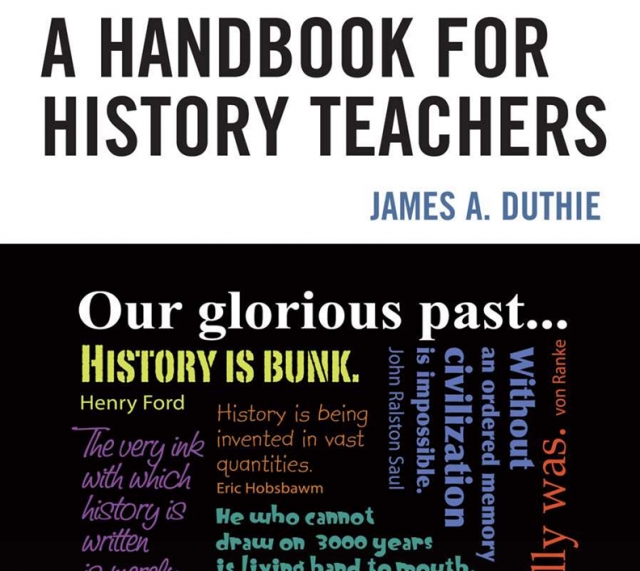A Handbook for History Teachers
Review

A Handbook for History Teachers, James A. Duthie, University Press of America, New York and Plymouth UK, paperback, x + 302 pp ISBN 9780761859901.
Although James A. Duthie was born in Edinburgh and earned an MA in history from the University of Edinburgh, he trained as a teacher at Victoria and this handbook is an American imprint and so his experience and intended audience is geographically fairly diffuse. In his bibliography very few of the pedagogical sources cited were targeted specifically at teachers in UK schools with the notable exception of books or articles by Josh Brooman, Ian Dawson, Tony Howarth and Denis Shemilt, but rather more familiar historians are also cited ranging from Arthur Marwick on primary sources to Eric Hobsbawm on contemporary history.
Trainee teachers who may well turn to this volume for inspiration and practical guidance need therefore to be aware of the book's provenance and its limitations as a manual for teaching history in UK schools. Having made this clear, however, there is much which UK history teachers will find stimulating and helpful in the author's approach. The first four chapters deal with ‘the nature of history, its importance as a field of study and the logical processes involved in the discipline'. Subsequent chapters then consider practical methods for teaching the subject ‘in a way consistent with its logical structure'. Then follow two chapters on the use of documentary sources, providing advice on how to answer document-based questions. Another chapter deals with the evaluation and grading of student's work, whilst a final chapter offers guidance on effective classroom management. Here, one of his tips is that ‘it is essential to maintain excellent personal hygiene' and that ‘an effective breath freshener is also a good thing to have in the classroom at all times'! The author emphasizes at the outset that his book is not ‘an academically-researched work' but claims that he has field-tested the material in it over three decades.
In summing up the qualities of good history teaching the author emphasizes the importance of focusing upon the needs of individual students and being passionate ‘about opening their minds to new worlds and to new ways of thinking about those worlds and helping them to grow and mature'. Few would take issue with this fundamental aim but will need to make up their own minds about the usefulness within the context of their own teaching situation about which of the approaches commended by the author towards the realising of this aim will work well in their own classrooms.

